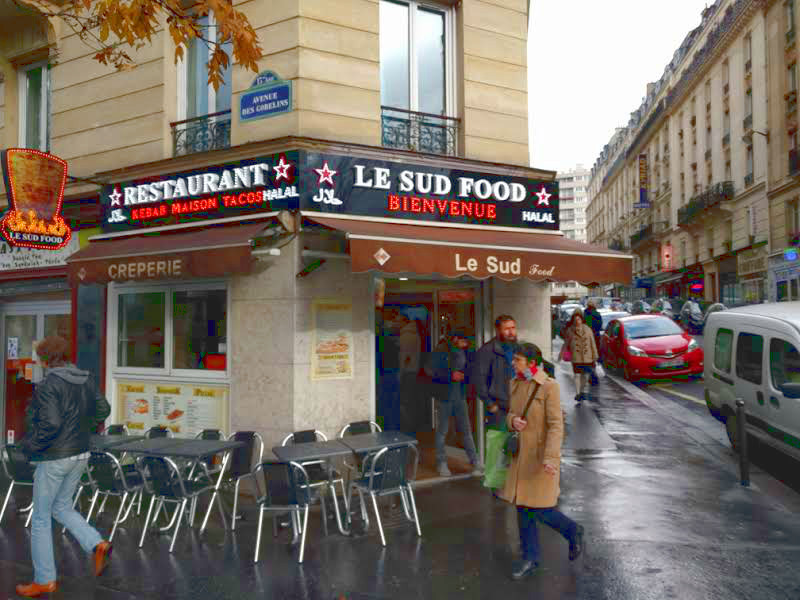December 4, 2017 @ 2:19 pm
· Filed by Geoffrey K. Pullum under Names, singular "they", Syntax
Evidence continues to pile up that singular they is naturally used in standard English whenever the antecedent is indefinite or quantifier-like (not a personal name, for example) and the sex of whoever it might turn out to identify is completely immaterial. My correspondent Daniel Sterman thought, and I thought too, that there was evidence of this being true now even in the writing of journalists. Sterman spotted this in an article by John Bowden, writing in The Hill, concerning Temple University PhD candidate Phillip Garcia, who has won the position of judge of election in Ward 21, Division 10, Philadelphia:
A Philadelphia resident was shocked to receive a letter Friday saying they won an election earlier in the month — apparently because no one else cast a vote.
"I literally yelled 'what the hell' when I opened the letter," Phillip Garcia told The Hill. "I've written my name in a few times during elections when no one else is listed for a position. It's just been a thing I do, with no expectation of, like, actually making an impact on the vote."
But we were wrong here (this post has been corrected in the past hour).
Read the rest of this entry »
Permalink
December 4, 2017 @ 7:07 am
· Filed by Mark Liberman under Morphology, Words words words
"Wall Street big, 49, killed by shark while diving in Costa Rica", Fox News (N.Y. Post) 11/4/2017:
A 49-year-old Wall Street private equity manager was killed by a tiger shark while diving with a group off a Costa Rican island, according to officials.
Read the rest of this entry »
Permalink
December 3, 2017 @ 1:10 pm
· Filed by Victor Mair under Signs, Standard language, Translation
If you see the two big letters "GB" in the top right corner of an official publication from the Chinese government, you know it's serious. Those letters stand for Guójiā Biāozhǔn 国家标准 ("National standard").
In the present instance, they have promulgated, as of December 1, 2017, "Guidelines for the use of English in public service areas — Part 9: Accommodation and catering". They also have issued similar guidelines for transportation, tourism, culture and entertainment, sports and athletics, education, medicine and sanitation / health / hygiene, communication, and commerce / business and finance.
Read the rest of this entry »
Permalink
December 2, 2017 @ 9:54 pm
· Filed by Victor Mair under Borrowing, Etymology, Language and fashion, Slang, Translation
"Japanese start-up helping ‘delinquents’ compete against college graduates for city jobs with new internship: The company Hassyadai has so far helped 100 youth from outside Tokyo to land employment", SCMP (12/2/17):
Dubbed the “Yankee internship”, the programme, whose participants range in age from 16 to 22, is unique in that it includes the category of Yankee – Japanese slang for delinquent youth.
How did English "Yankee" come to mean "delinquent youth" in Japanese?
Read the rest of this entry »
Permalink
December 1, 2017 @ 11:11 pm
· Filed by Victor Mair under Quizzes
ProZ.com is a membership-based website that targets freelance translators. They currently have posted a job for which they are seeking a qualified translator, but are uncertain of what language the source text is in. On first sight, the sample text (see below) looks vaguely Turkic to me. The person who posted the job notes:
We are trying to figure out this language. It was thought to be Turkish of which it is not familiar to native Turkish translators. It is thought to possibly be Turkish Tartar, Bulgarian, Georgian, Uzbek.
Read the rest of this entry »
Permalink
December 1, 2017 @ 4:22 pm
· Filed by Mark Liberman under Announcements
Language Log will be off the air for a while this weekend, due to building-wide electrical repairs.
Permalink
November 30, 2017 @ 11:03 pm
· Filed by Victor Mair under Borrowing, Language and food, Lost in translation, Topolects
Given the bevy of shamed politicians and celebrities who have been paraded before the public in recent weeks, it may be of interest that the word for "sexual harassment" in Chinese is quite a colorful one:

(Source)
Read the rest of this entry »
Permalink
November 29, 2017 @ 2:16 pm
· Filed by Mark Liberman under Borrowing
In Paris for this workshop, I'm glad to see that cultural diffusion is alive and well on l'Avenue des Gobelins:

Read the rest of this entry »
Permalink
November 29, 2017 @ 1:19 pm
· Filed by Victor Mair under Dictionaries, Language and computers, Lexicon and lexicography, Writing systems
From Mark Meckes:
I'm a regular Language Log reader, completely ignorant of Chinese languages. I was just wondering whether there exist worthwhile online tools to help someone like me figure out the meaning of something written only in hanzi. (The question is occasioned by my looking at a package of tea given to me by a Chinese student; the writing on the package is mostly hanzi, with a little English and no pinyin.) I'm perfectly competent to use Google Translate and similar tools (and know how much skepticism to approach the results with) for the last stage of the process. But starting from written hanzi on a physical object, I first need some way to translate that image into either pinyin, Unicode, English, or something equivalent to one of the above — and something that relies on no knowledge of the meaning or pronunciation of the characters, or knowledge of the structure of Chinese characters in general. Do you have any suggestions?
Read the rest of this entry »
Permalink
November 28, 2017 @ 12:00 pm
· Filed by Victor Mair under Changing times, Humor, Language and society
The following are new forms of greetings that are circulating in Beijing on the heels of a major child molestation scandal at an elite school, the forced eviction of migrant workers, the convictions and suicides of ranking politicians, and perpetual fears of social instability.
Read the rest of this entry »
Permalink
November 27, 2017 @ 3:16 pm
· Filed by Victor Mair under Borrowing, Lexicon and lexicography, Morphology
From Thorin Engeseth:
I was doing some reading this morning on the magpie, and the Wikipedia page states:
Similarly, in China, magpies are seen as an omen of good fortune. This is even reflected in the Chinese word for magpie, simplified Chinese: 喜鹊; traditional Chinese: 喜鵲; pinyin: xǐquè, in which the first character means "happiness".
I'm almost entirely illiterate when it comes to the languages of China, so I took to Google Translate just to see how it would translate the two characters from both simplified and traditional script. In both, the first is translated as "like; to be happy", while the second is "magpie". My question is: if the second character itself can be translated as "magpie", if Google Translate is correct here, then is the first character still necessary?
Read the rest of this entry »
Permalink
November 27, 2017 @ 6:44 am
· Filed by Mark Liberman under Rhetoric, Semantics
Ross Douthat, "Is There an Evangelical Crisis?", NYT 11/25/2017 (emphasis added):
But it’s also possible that evangelical intellectuals and writers, and their friends in other Christian traditions, have overestimated how much a serious theology has ever mattered to evangelicalism’s sociological success. It could be that the Trump-era crisis of the evangelical mind is a parochial phenomenon, confined to theologians and academics and pundits and a few outlier congregations — and that it is this group, not the cultural Christians who voted enthusiastically for Trump, who represent the real evangelical penumbra, which could float away and leave evangelicalism less intellectual, more partisan, more racially segregated … but as a cultural phenomenon, not all that greatly changed. […]
Correction: November 26, 2017
An earlier version of this column misstated a possible belief among some Christians about how much a serious theology matters to evangelicalism’s sociological success. They may have overestimated it, not underestimated it.
Read the rest of this entry »
Permalink
November 26, 2017 @ 4:39 pm
· Filed by Victor Mair under Language and politics, Language and science
Wunderbar!
China had a toilet reform movement already a decade or two ago. I remember reading a whole, serious book about how to improve toilet construction and behavior. In fact, I bought a copy and studied it assiduously, but can't put my hands on the volume at this moment.
Apparently the toilet improvement campaign is still going on. In this "Dictionary of Xi Jinping's new terms", it is number 9 out of 20 key items in the imperial lexicon extracted from President Xi's "Important speeches he made in conferences, inspections and state visits [that] set the tone for China's reform, development agenda and diplomacy." This "dictionary" was issued by The State Council Information Office of the People's Republic of China. Here's the entry for "Toilet revolution":
Along with agricultural modernization and new rural construction, local governments will ensure that villagers have access to hygienic toilets.
Read the rest of this entry »
Permalink

